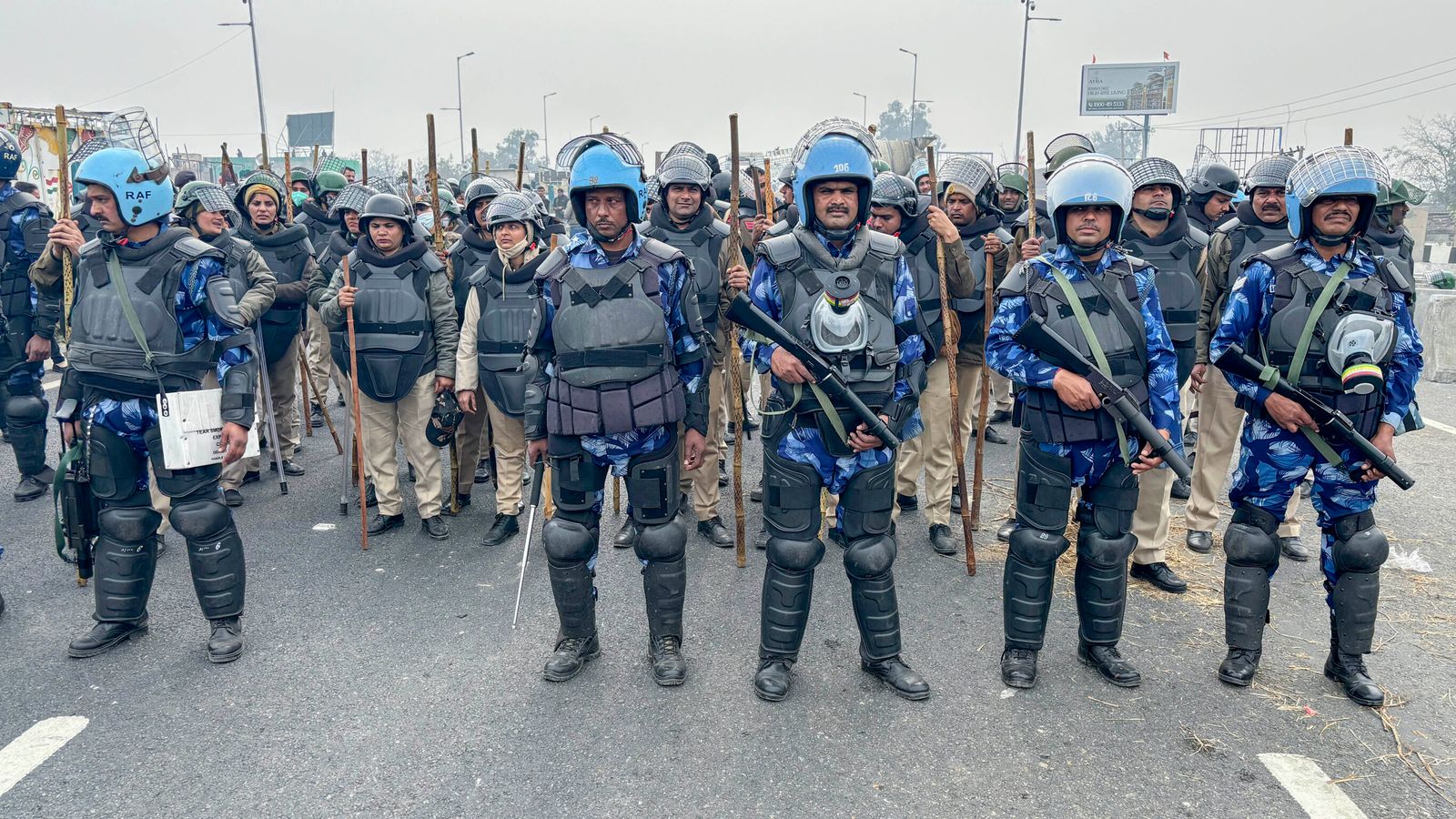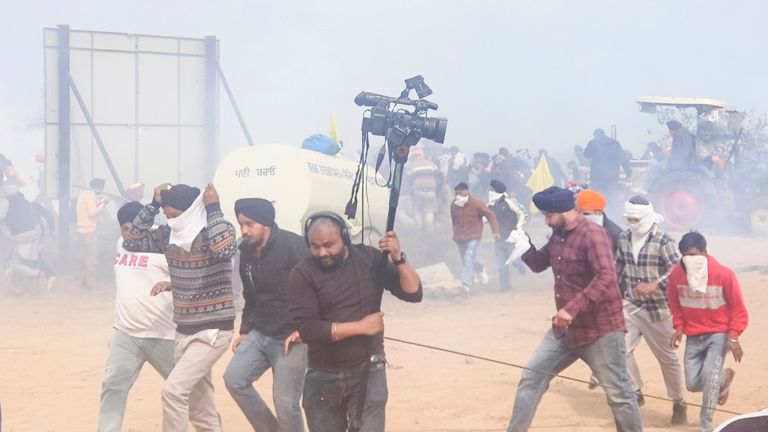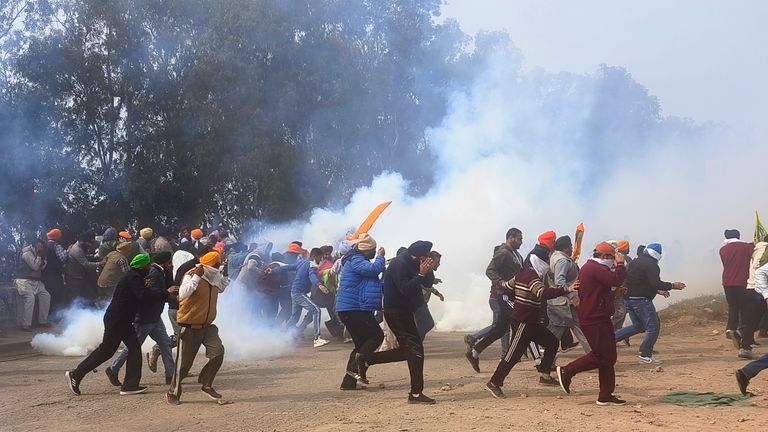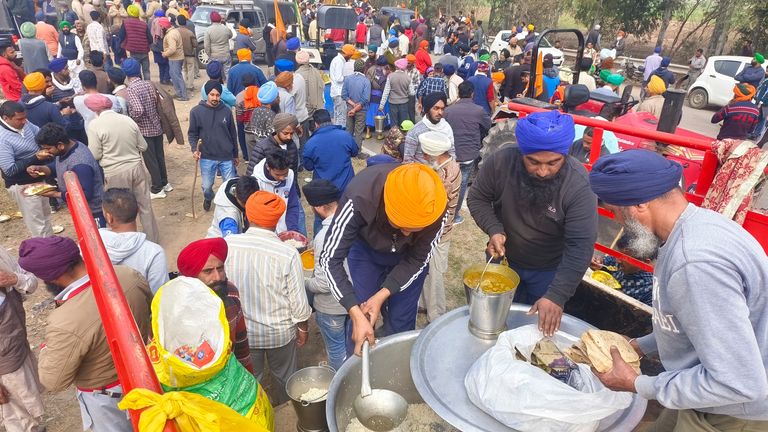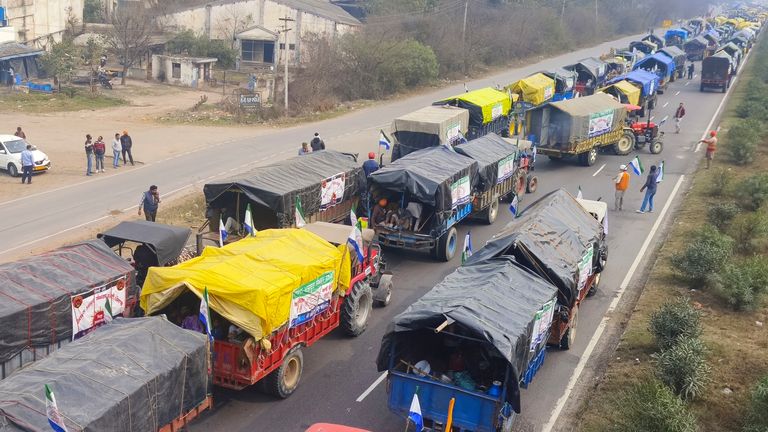More than 200 farmers’ unions have called on their supporters to march to the Indian capital to protest against unfulfilled demands on a wide range of issues including prices and pensions.
Tear gas was used on farmers who tried breaching the barriers at the Shambhu border between Punjab and Haryana, about 145 miles from the capital, New Delhi.
Drones were also used to drop tear gas canisters on the thousands gathered, while several farmers were detained at the border.
The farmers – who have a 12-point agenda and are prepared to camp out for six months in protest – want a minimum guarantee price for all farm products, pensions for farmers and farm labourers, and criminal cases against those protesting farm laws dropped.
They are also seeking full debt waivers, a withdrawal from the World Trade Organization (WTO), and a freeze on all free trade agreements.
The administration of the state of Haryana – through which most of the protesters will march – has bolstered security by laying containers, concrete blocks, razor wire, iron rods and embedding nails into roads.
Thousands of police and paramilitary in riot gear are stationed all along the highways and at strategic junctions to stop tractor convoys trying to make their way to the capital.
Internet services have been suspended in some places.
Talks between the government and farmers’ groups have remained inconclusive.
Sarwan Singh Pandher, a farmer leader, said: “We do not think the government is serious about any of our demands. We do not think they want to fulfil our demands.”
Arjun Munda, India’s agricultural minister, said “a consensus was reached on most issues”, and that the government “always wants that we can resolve every issue through dialogue”.
In New Delhi, the police are taking no chances and have deployed multi-layer barricades on all arterial roads leading into the capital, while the border roads have been sealed.
The restrictions have led to traffic building up across the city.
Ankit Singh, deputy commissioner of Delhi Police, said: “Section 144 had been clamped to restrict the assembly of people and the entry of tractor trolleys into Delhi.
“Over 2,000 personnel from various units have been deployed to maintain law and order.”
Though not all farm unions have joined in the march, overwhelming numbers of protesters are from the states of Punjab and Haryana.
Their leaders have said they have enough rations and resources to camp for six months or more.
The experience of a year-long protest by farmers in 2020 against three federal laws that descended into violence several times is still fresh.
Thousands of farmers had hunkered down, encircling the capital and blocking key highways.
Dozens had died and, under intense pressure, Prime Minister Narendra Modi’s government had to repeal these laws.
Read more:
Brother of jailed Briton tells Cameron ‘his life is in your hands’
Indian model fakes death in cervical cancer publicity stunt
The government will be keen to contain the protest and not repeat past mistakes, as a majority of Indians are directly or indirectly associated with farming.
The farmers are an influential voting block and the government will be mindful of its effect in the general election that is due in the next few months.
